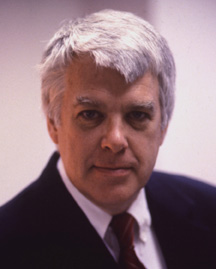|
Nicole L. Wagner, PhD
President and Chief Executive Officer
Contact Email: nicole.wagner@lambdavision.com
Dr. Nicole Wagner obtained her PhD in Molecular and Cell Biology from the University of Connecticut under the advising of Dr. Robert Birge, a pioneer in the field of light-sensitive proteins. Nicole entered the graduate program in 2007 and spent the majority of her graduate career working on optimizing retinal-containing proteins for application in devices. During the course of her PhD research, she played a critical role in the proof-of-concept experiments which helped to found LambdaVision. Through the use of site-directed mutagenesis, site-specific saturation mutagenesis, and directed evolution, Nicole was able to genetically engineer the protein, bacteriorhodopsin, for a variety of device applications, including protein-based holographic and 3-dimensional memories, a chemical detection sensor, and, most recently, a protein-based artificial retina.
Nicole is an accomplished scientist and entrepreneur with numerous peer-reviewed publications, and has presented her research at both national and International meetings. In 2012, she received the Connecticut Technology Council’s Women of Innovation “Collegian Innovation and Leadership Award” for her work with LambdaVision, and in 2015, was listed as one of CT Magazine’s 40 under 40. Nicole currently serves as LambdaVision’s president and CEO. Since taking on the role of CEO, Nicole has been successful in securing over $8M in local, state, and government funding to accelerate the research, development, and commercialization of LambdaVision’s artificial retina.
|
|
Jordan A. Greco, PhD
Chief Scientific Officer
Contact Email: jordan.greco@lambdavision.com
Dr. Jordan Greco obtained his PhD in Physical Chemistry at the University of Connecticut. Under the direction of Dr. Robert Birge, Jordan focused his graduate thesis work primarily on the investigation of the structure and function of photoactive proteins, using both spectroscopic and quantum mechanical approaches. Much of his work has contributed toward the application of the light-activated protein, bacteriorhodopsin into photonic and biomimetic devices, such as protein-based optical memories and processors, photovoltaic cells, and the protein-based artificial retina being developed by LambdaVision.
Jordan's graduate thesis work influenced the design and development of the artificial retina construct and the production techniques that are used to produce the treatment. Moreover, his research efforts helped to direct critical proof-of-concept experiments that investigated the efficacy of the artificial retina architecture. As CSO, Jordan is responsible for the production of the artificial retinas, establishing standard operating procedures and quality control measures, and commercialization efforts.
Concurrent with his work on bacteriorhodopsin, Jordan has contributed to numerous computational analyses for the excited-state behavior of heterocyclic-conjugated compounds (e.g., porphyrin, chlorins, and corroles), carotenoids (e.g., peridinin), and other polyene-based chromophores rooted in biological systems. Jordan has presented this work to international audiences and he continues to remain active in the field via several multidisciplinary collaborations.
|
|
Robert R. Birge, PhD
Founder
Contact Email: robert.birge@lambdavision.com
Dr. Robert Birge received his B.S. degree in chemistry from Yale University in 1968, his PhD in chemical physics from Wesleyan University in 1972, and was a National Institutes of Health postdoctoral fellow at Harvard University from 1973-1975. He was an Assistant and subsequently a tenured Associate Professor of Chemistry at the University of California, Riverside (1975-1984), and then served as Professor and Head of the Chemistry Department at Carnegie Mellon University (1984 - 1987). He joined the faculty at Syracuse University in 1988 where he was a University Professor of Chemistry and Physics, Director of the W. M. Keck Center for Molecular Electronics, and Research Director of the New York State Center for Advanced Technology in Computer Applications and Software Engineering. In January 2000, he joined the faculty at the University of Connecticut where he holds the Harold S. Schwenk Distinguished Chair in chemistry. He has published over 250 research papers and holds 5 U.S. and international patents on the use of proteins to make holographic associative memories, three-dimensional paged memories, and hybrid protein-semiconductor devices. He has served on the editorial advisory board of seven journals and was an associate Editor of Biospectroscopy. In 1997, he was listed among the fifty "Cyber Elite" by Time Digital for his work on protein-based devices, and the use of these devices for computer memories and processors. Dr. Birge won the Connecticut Innovations 2001 Annual Technology Award, the 2002 3M Award of Canada for Physical Chemistry and the 2009 Connecticut Medal of Science. Dr. Birge paved the way for the development of LambdaVision’s artificial retina and continues to be actively involved in the company.
|





